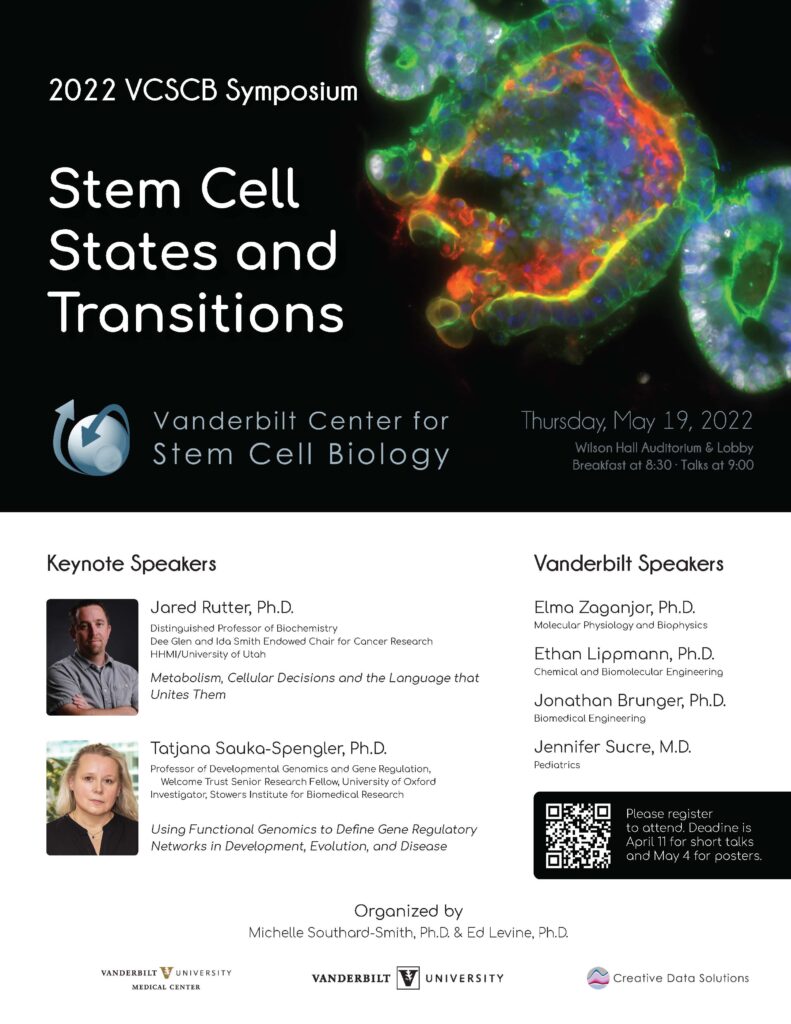2022 VCSCB Symposium

AGENDA
2022 VCSCB Symposium
Wilson Hall and Lobby
May19, 2022
Thursday, May 19
Morning session (Rebecca Ihrie and Eunyoung Choi co-moderators)
8:30 Badge Pick-Up/Continental Breakfast – Wilson Hall Lobby
9:00 Welcome and Introductions
Ed Levine, Ph.D. & Michelle Southard-Smith, Ph.D
9:10 Ethan Lippmann, Ph.D.
“Reactive astrocyte transitions and their contributions to blood-brain barrier dysfunction”
9:35 Elma Zaganjor, Ph.D.
“The role of mitochondrial metabolism in cell fate”
10:00 Coffee Break
10:20 Gabriella Robertson (Gama Lab)
“Efffective mitochondrial & peroxisomal fission disrupts neurogenesis”
10:35 Loic Fort, Ph.D. (Macara Lab)
“Apoptotic Find-me Signals are an Essential Driver of Stem Cell Conversion
to the Cardiac Lineage”
10:50 Keynote Speaker – Jared Rutter, Ph.D. (Introductions by Ed Levine)
Metabolism, Cellular Decisions and the Language that Unites Them”
Midday session
11:40 Box Lunch/Posters – Wilson Hall Lobby
Afternoon session (Vivian Gama and Kathy DelGiorno co-moderators)
1:45 Jennifer Sucre, Ph.D.
“The Time Traveler’s Lung: Untangling Lung Development and regeneration
Single-Cell Resolution”
2:10 Jonathan Brunger, Ph.D.
“Artificial Cell Control Modules to Advance Cell Therapies and
Synthetic Morphogenesis”
2:35 Justin Avila (Southard-Smith Lab)
“Effects of Sox100N Murine Enteric Nervous System Lineage Allocation”
2:50 Lindsey Guerin (Hodges Lab)
“Multi-level epigenome profiling reveals temporally distinct role for DNAme at cell
fate specifying enhancers during early differentiation”
3:05 Break
3:20 Keynote Speaker – Tatjana Sauka-Spengler, Ph.D.
(Introductions by Michelle Southard-Smith)
“Using functional genomics to define gene regulatory networks in development,
evolution, and disease”
4:20 Closing Remarks – Mark Magnuson, M.D.